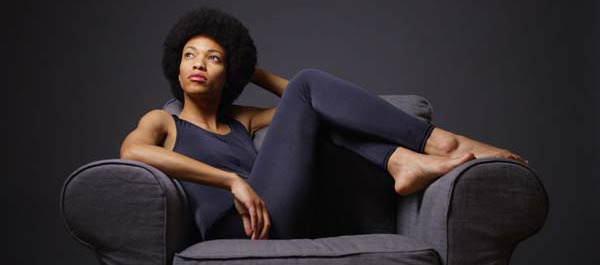By Lia Miller
In the last 48 hours, I have had separate conversations with two acquaintances, both white females (one at my workplace and one at my children’s school) about my hair.
Let me preface this post by saying I have 5-year old locs (or dreadlocks if you prefer). And for the last few months, I have been getting more and more into the spirit of do-it-yourself styling and experimentation. In this particular instance, my hair was styled into a cute high bun with some faux bangs (i.e. locs curled/bent in half to give the appearance of bangs), a fairly easy style to execute and certainly attention grabbing, which are the goals.
Getting back to my acquaintances, both of them made comments about my hair and praised the style, saying how fancy it was, how versatile it seemed (as in good for the office or a night on the town) and how elaborate it appeared. Then in the same breath, they negated their compliments by asking if the hair was my own. Cue sound of a record being scratched – Are you serious?

Now don’t get me wrong, I have no problems with women who wear weaves, add extensions, don wigs, dye their hair or other types of hair enhancements and plenty of women of ALL races do and wear all of the above.
Also this is not a criticism of my acquaintances either, they were innocently curious and I understand that. My issue is with the default assumption that my hair (read: Black Female Hair) is “fake” or that if a black female is wearing long hair, it must be extensions or not her own.
This clearly isn’t the case in many instances. And I don’t find it’s an appropriate question to ask in most circumstances. For the most part, no one asks “other” women whether they have hair extensions or are wearing a weave/wig.
Admittedly, many black women do use weaves, wigs and extensions and have even taken it to the level where it’s become an art form. There are many reasons why women opt to wear/use fake hair. Chief among these reasons is the fact that hair enhancements look good and are relatively easy to maintain. They also allow more time to focus on other more important daily life activities and responsibilities, instead of on primping and preening.
However, despite the usage of enhancements by black women, that doesn’t mean black women should face more scrutiny or flak for doing so or are somehow more open to being questioned about their hairstyling choices.
Bottom line: Check your assumptions at the door, and don’t ask inappropriate questions like “is that your real hair”?
BMWK, am I wrong? Does someone questioning the realness of your hair offend you?
 Lia Miller, known to the blogging world as Lia World Traveler, is the quintessential every-woman, a loving wife and mother, daughter, sister, friend, author/singer/song-writer, movie and book buff, DIY loc’d naturalista, food lover, sports and fitness enthusiast, news junkie, traveling fool, diplomat, diversity/social inclusion advocate and life-time learner. In both her work and private life, Miller has seen a lot and done a lot, and through her writing. she shares her adventures and insights with you at Life As I See It.
Lia Miller, known to the blogging world as Lia World Traveler, is the quintessential every-woman, a loving wife and mother, daughter, sister, friend, author/singer/song-writer, movie and book buff, DIY loc’d naturalista, food lover, sports and fitness enthusiast, news junkie, traveling fool, diplomat, diversity/social inclusion advocate and life-time learner. In both her work and private life, Miller has seen a lot and done a lot, and through her writing. she shares her adventures and insights with you at Life As I See It.


Leave a Reply